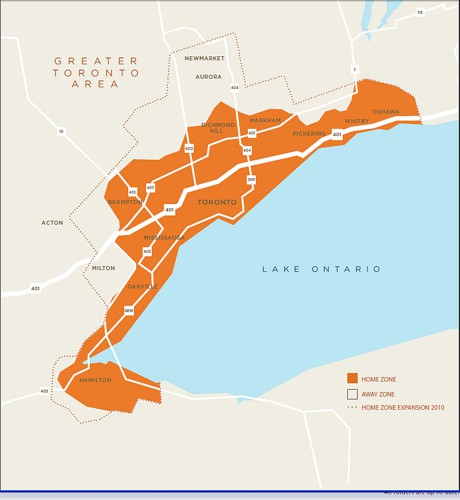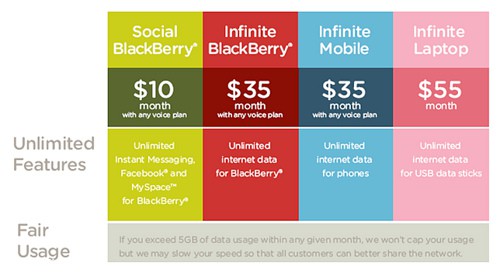At least one FCC commissioner remains unconvinced that Verizon Wireless’ recent decision to double the fee consumers pay for service cancellation is justified. Virtually every carrier offering discounts on handsets and other equipment tie those savings to a two year service contract, with a stinging early termination fee (ETF) if one decides to leave before the contract is up.
Commissioner Mignon Clyburn released a public statement Wednesday questioning Verizon’s logic in their explanation that doubling the cancel fee from $175 to $350 helped defray costs ranging from network expansion and marketing to paying to keep the lights on in Verizon Wireless retail stores. Clyburn called Verizon’s answers unsatisfying at best, alarming at worst.
“I am concerned about what appears to be a shifting and tenuous rationale for ETFs. No longer is the claim that ETFs are tied solely to the true cost of the wireless device; rather, they are now also used to foot the bill for ‘advertising costs, commissions for sales personnel, and store costs.’ Consumers already pay high monthly fees for voice and data designed to cover the costs of doing business. So when they are assessed excessive penalties, especially when they are near the end of their contract term, it is hard for me to believe that the public interest is being well served,” Clyburn wrote in a public statement.
Verizon also continues to get heat over mysterious fees appearing on some Verizon Wireless customer bills. As Stop the Cap! reported back in September, consumers with basic service plans occasionally find $1.99 “data charges” on their monthly bills, and several have obtained refunds from the carrier after pointing out they do not use data features on their phones.
The mystery was suggested solved when a purported, unnamed Verizon Wireless employee engaged in some whistleblowing at The New York Times:
“The phone is designed in such a way that you can almost never avoid getting $1.99 charge on the bill. Around the OK button on a typical flip phone are the up, down, left, right arrows. If you open the flip and accidentally press the up arrow key, you see that the phone starts to connect to the web. So you hit END right away. Well, too late. You will be charged $1.99 for that 0.02 kilobytes of data. NOT COOL. I’ve had phones for years, and I sometimes do that mistake to this day, as I’m sure you have. Legal, yes; ethical, NO.
“Every month, the 87 million customers will accidentally hit that key a few times a month! That’s over $300 million per month in data revenue off a simple mistake!
“Our marketing, billing, and technical departments are all aware of this. But they have failed to do anything about it—and why? Because if you get 87 million customers to pay $1.99, why stop this revenue? Customer Service might credit you if you call and complain, but this practice is just not right.
“Now, you can ask to have this feature blocked. But even then, if you one of those buttons by accident, your phone transmits data; you get a message that you cannot use the service because it’s blocked–BUT you just used 0.06 kilobytes of data to get that message, so you are now charged $1.99 again!
“They have started training us reps that too many data blocks are being put on accounts now; they’re actually making us take classes called Alternatives to Data Blocks. They do not want all the blocks, because 40% of Verizon’s revenue now comes from data use. I just know there are millions of people out there that don’t even notice this $1.99 on the bill.”
Verizon Wireless denies it charges consumers for accidental web usage that lands on their mobile phone home page, which they claim is exempt from charges. But Clyburn isn’t buying that explanation either.
“I am also alarmed by the fact that many consumers have been charged phantom fees for inadvertently pressing a key on their phones thereby launching Verizon Wireless’s mobile Internet service. The company asserted in its response to the Bureau that it ‘does not charge users when the browser is launched,’ but recent press reports and consumer complaints strongly suggest otherwise,” Clyburn writes.
“These issues cannot be ignored. Wireless communications are an essential part of our lives, linking us to our places of business, our communities, and our loved ones. The bottom line is that wireless companies can truly earn their desired long-term commitments from consumers by focusing primarily on developing innovative products, maintaining affordable prices, and providing excellent customer service. I look forward to exploring this issue in greater depth with my colleagues in the New Year,” she adds.
Verizon Wireless is also the only carrier that has not responded to a campaign by a Times columnist to let customers get rid of the airtime-wasting 15 seconds of voicemail instructions people wait through when trying to leave messages, something the wireless industry admits is there precisely to use up airtime and maximize revenue.
Clyburn joined the Commission this year, appointed by incoming President Barack Obama. Her father James is the third-ranking Democrat in the House behind House Speaker Nancy Pelosi and Majority Leader Steny Hoyer.
[flv width=”480″ height=”380″]http://www.phillipdampier.com/video/WIVB Buffalo Best and Worst Cell Providers 12-7-09.flv[/flv]
WIVB-TV Buffalo reviewed Consumer Reports’ findings regarding the nation’s best and worst cell phone providers. Despite Verizon’s controversial fees, it remains top-rated by the magazine’s readers. (12/7/09 – 2 minutes)


 Subscribe
Subscribe






